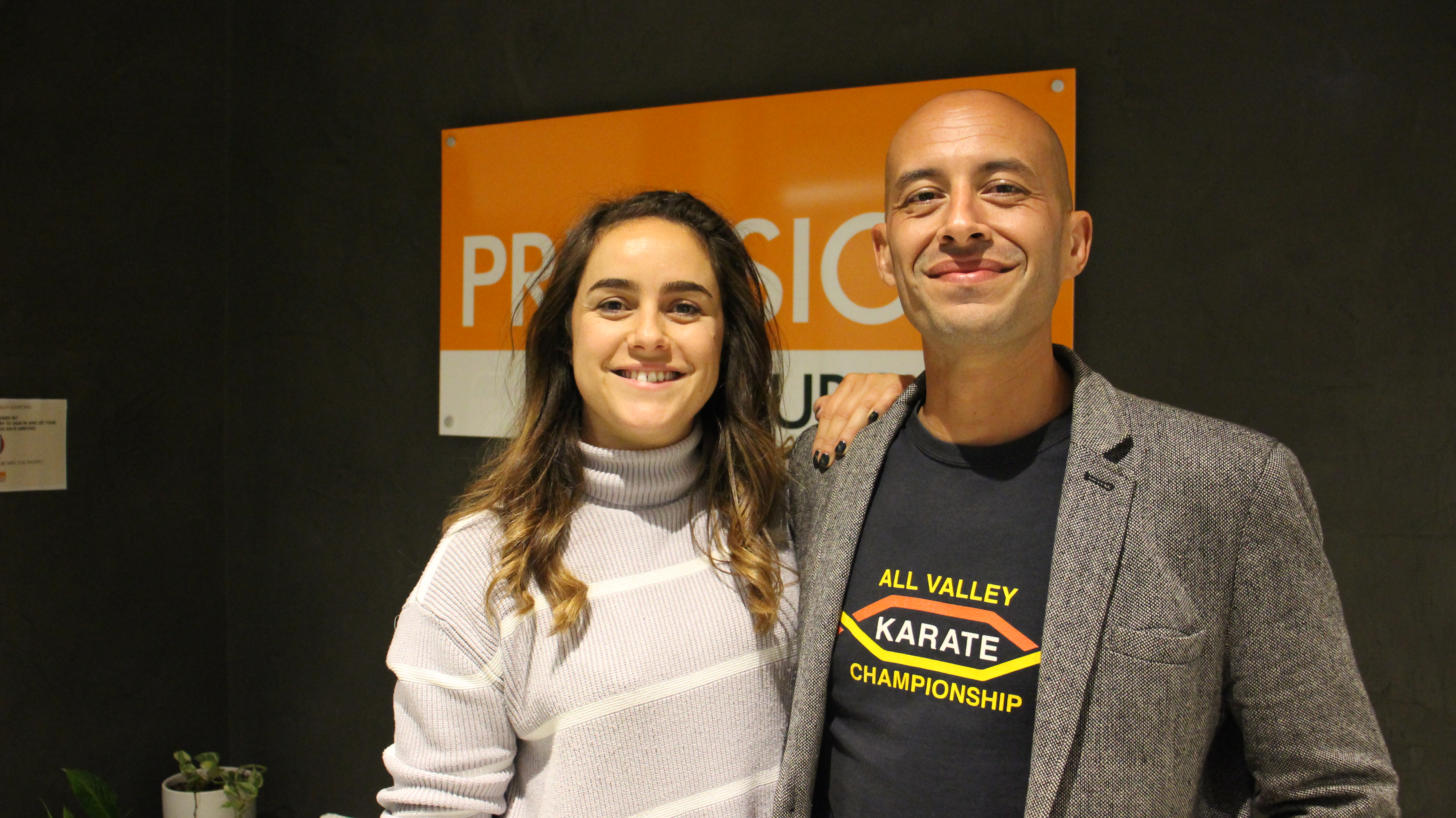
Aug 14, 2019
Women in Data Founder Leisha Morrison caught up with some of the men inspired by Women in Data and the drive for equality in the tech industry.
-
What does Women in Data mean to you?
Salem: In my opinion Women in Data is the most important initiative happening in Australia today in the field of data. As the rest of the world is waking up to the idea that women make the world a better place irrespective of the area of study, so Women in Data is showing Australia that our industry can be better by being more inclusive of the better sex. Take for example the area algorithm creation for ML… This field has already been proven to contain our own human biases towards race and demographics in a negative way and are having an exponential impact in the areas of law enforcement as an example. These are even more compounded when adding in pre-conceptions about women or ignoring them entirely as men are writing these algorithms.
Simon: Data is at the core of most decisions that me and my team make. I have an amazing, smart and supportive wife and a baby daughter so the importance of ensuring women voices are heard in this space rings true to the future I want for my children (not just my daughter but my two sons too).
-
Tell me about some of the diversity issues you have noticed companies face and why you think they’ve faced them.
Jehan: I can only speak from what I’ve seen and heard, so I’d take my comments with a grain of salt. It seems that it’s hard to hire women in analytics and computer science roles as there are so many more men than women in the field. Even then, it’s hard to find people with the right skills, so employers often struggle to fill roles regardless of gender. That said, a question that comes to mind is: why do we have a gender disparity at all? Some people argue that women are less interested in working in male-dominated fields due to there being harassment and/or discrimination and others argue that there is implicit bias where women are judged more harshly than men and are less likely to get a fair go. I suspect that there are multiple factors that drive these outcomes and I think the solution will have to cover all those factors in order to be effective.
Salem: Diversity is an important aspect of a business today. Companies tend to struggle with this as leaders in Australia are statistically more likely to be male and as humans we are wired to like people like us and surround ourselves with similar people. In Psychology this is called ‘Reciprocal Liking’. Which then makes sense as to why only 17% of CEO’s, 23% of judges, 31% of Federal parliamentarians are women and yet women make up 78% of the healthcare sector, according to the Australian Bureau of Statistics (ABS)
Women in Data is the ideal way to change this for us in Data, if we can get positive reinforcement and normalise the behaviour of hiring women into data roles
-
Why is it important for men to attend these ‘Women in XXX’ events?
Simon: Because men need to be more aware of the issues women face in the workplace and to help change this in the future. Being ignorant to the issues which exist means they can never be fixed.
Jehan: Two reasons come to mind. The first is the empirical fact that most analytics professionals are men. So, if we want to raise awareness and connect talented women to more people in industry, we probably want men to have a seat at the table. The other reason is for men to hear from women in a forum that specifically deals with gender so we can be more aware of how we might help or, even more importantly, know if we are contributing to the problem.
-
What has been your favourite Women in Data event and why?
Salem: My favourite event was the one that covered off the impact for women when it comes to Superannuation. I loved this one as not only was it educational and confronting it was also delivered with great data visualisation and a positivity that felt like we can make a difference. The other reason I loved this talk was that it gave specific tasks we could do to improve the situation.
Jehan: I’ve only been to one so far but I really liked it! There were so many talented data analysts and data scientists. It’s great to hear about what other people are doing. Meeting people from Big Four consultancies, marketing/analytics agencies and client-side give you a good view of what people are doing, what their challenges are and where things are going.
-
What would you like to see for the future of WID or what do you think our attendees could benefit in participating in?
Salem: It would be great if, as part of or as an addition, we could have a workshop element so that people can have functional take-a-ways to implement
Jehan: I’d like to see more technical talks from talented women in analytics, both so I can learn and so they can build their profiles (there are far too many unsung heroes in analytics!). I’d also like to hear from experts in diversity issues, for example, the WGEA (or similar organisations) comes to mind.
-
Why would you recommend for people to attend our upcoming WID event and what do you think they will be able to take home from the event?
Simon: Learn more about how data can affect your daily job and your future career. Learn how you can make a difference in inequality and diversity.
Salem: People should attend the WID events if they genuinely care about gender inclusion, they are parents teaching the next generation of humans or they just want to meet people that are keen to make a difference in business.
Jehan: Networking is a lot more valuable than people think. The number of times I’ve been contacted for a role based on a connection I’d made several years prior is non-trivial. You also get to make sense of the industry and where things are going. You get a sense of where you should be upskilling to keep up with the analytics arms-race and which technologies/methodologies are more specific to your firm. This is one of the best ways to make sure you don’t get pigeon-holed long-term and are always valued in the labour market.
Salem Lassoued- Founder & Information Strategist
Salem has diverse experience spanning all areas of business strategy; including digital, media and data strategy, CRM and loyalty and combining behavioural science, data and analytics.
For more than a decade, Salem has led best in class digital and data-driven initiatives for businesses including Pfizer, Johnson & Johnson, Fairfax, Phillips, KFC, Virgin, Skype, Google, eBay, Orange, IKEA, and lynx. Before setting up his own business, he worked at MedicalDirector as their GM of Data Insights.
Simon Stocks- Digital Growth Lead
Simon Stocks has over 11 years experience working in digital, CX and technical innovation environments spanning all areas of digital marketing. Simon has created strategic roadmaps and executed on them within the financial, automotive, retail and FMCG industries including McDonald’s, Citibank, ANZ, Volkswagen, NRL and PayPal with a high level of success.
Jehan Gonsal is passionate about using the scientific method to solve complex business problems. As an analyst, he applies quantitative methods to find meaningful solutions that drive growth. Although he runs analytical methodologies, Jehan is most interested in the human side of analytics: collaborating in highly skilled teams, extracting insights and contextualising this for clients.
Complex projects require collaboration and communication, often in the face of extreme time pressures and ambiguity. Jehan’s is not just about running analyses but asking the right questions, aligning stakeholders and managing expectations, both internally and externally.
After graduating in Psychology (First Class Honours) from Melbourne University, Jehan moved from being an ESL teacher to a full-time role at the Centre for Workplace Leadership (Faculty of Business and Economics, University of Melbourne) where he coordinated the design and delivery of leadership programs.
Jehan is currently completing a Masters of Business Analytics at Deakin University to further develop his business acumen and technical skillset.







